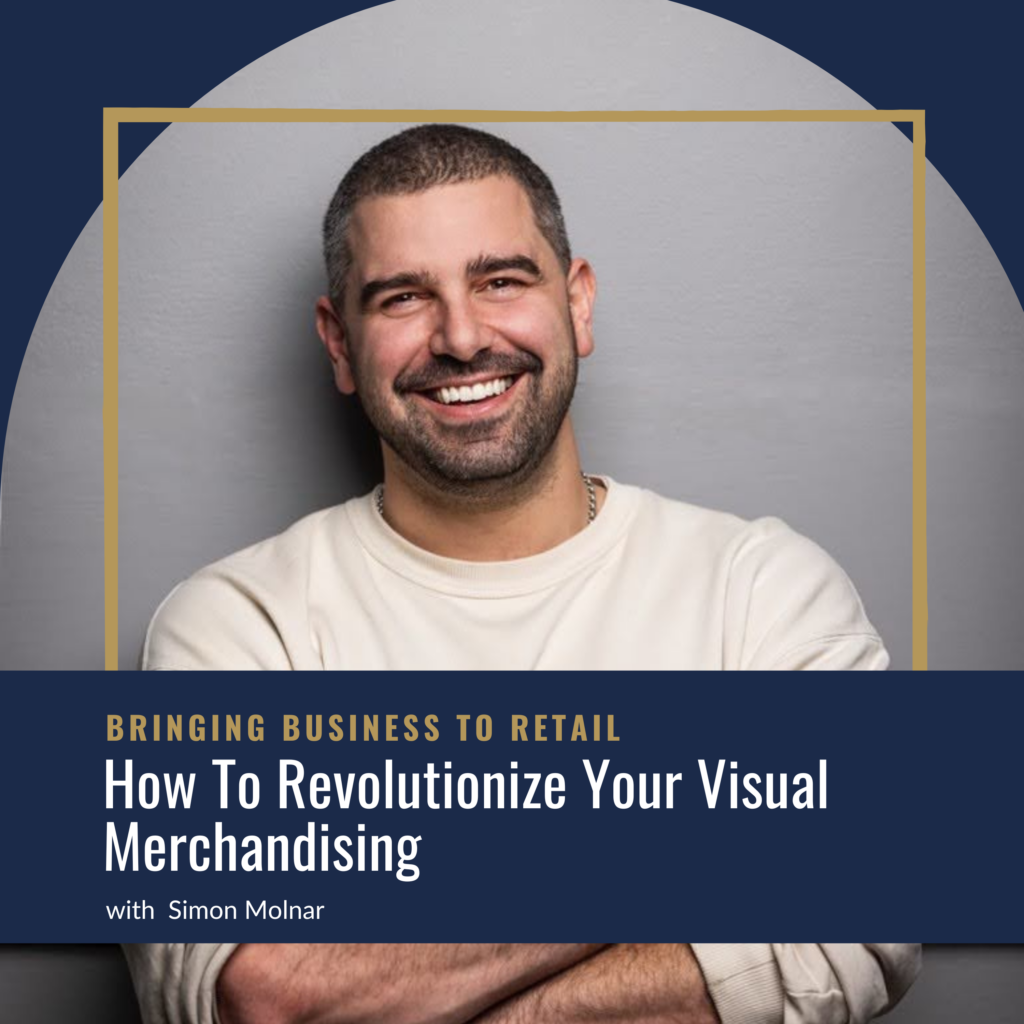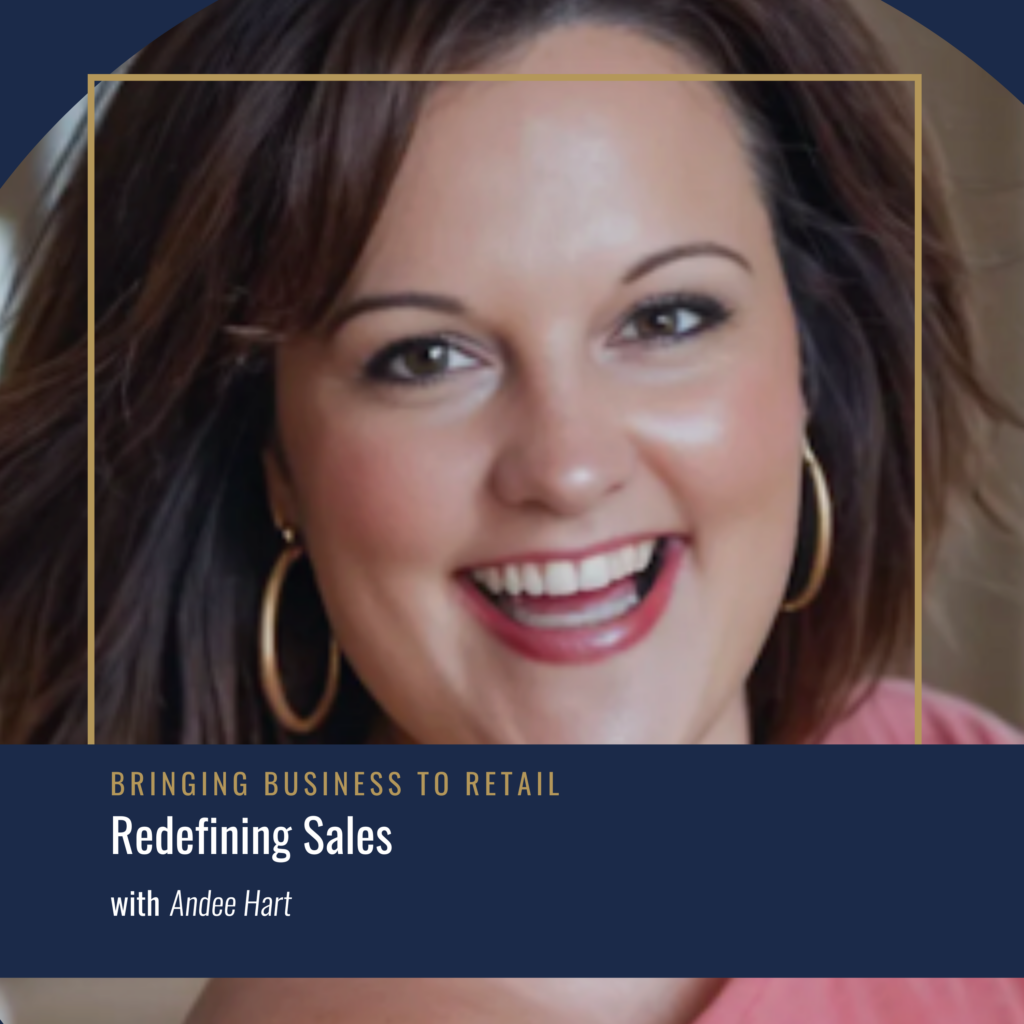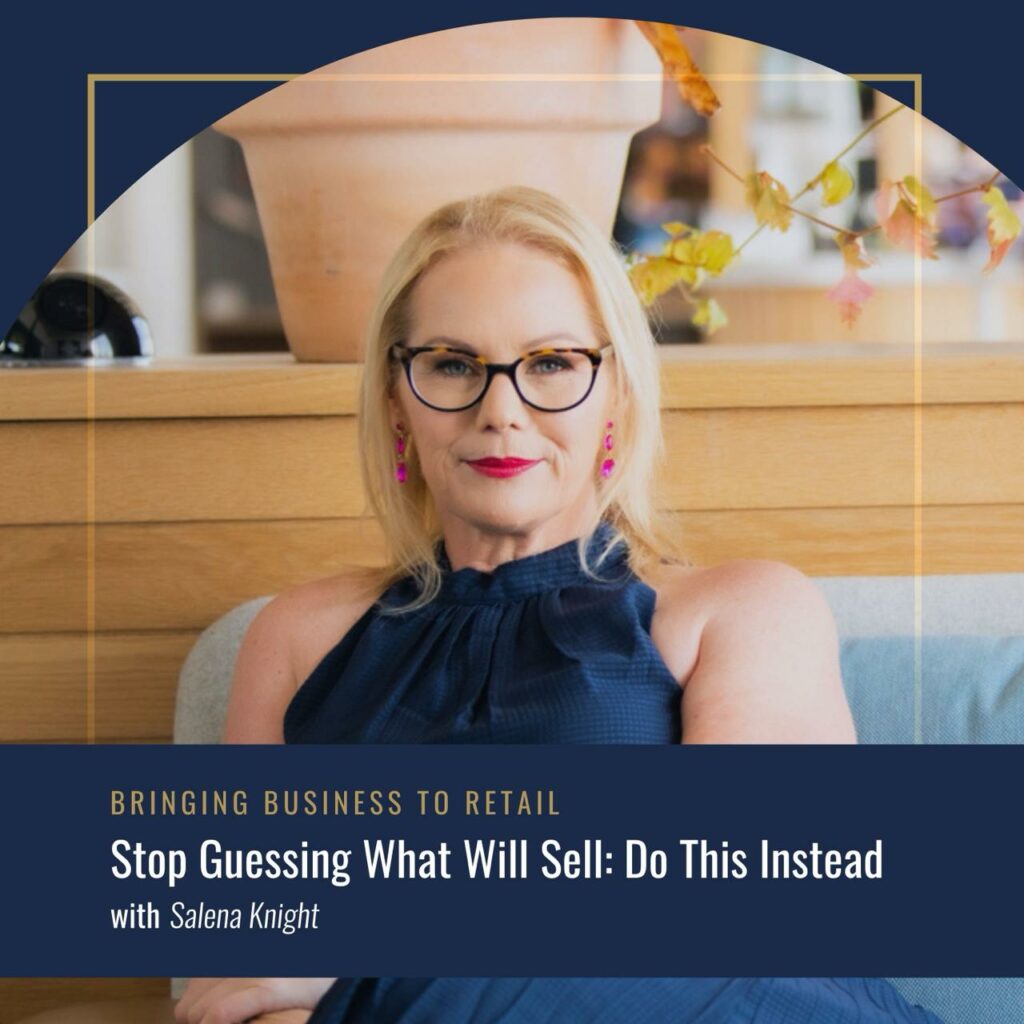
Google Ads—it’s a game-changer for retailers and eCommerce brands. But what happens when your ad account gets shut down without warning?
No explanation.
No help.
Just gone…
In this episode, I sit down with Google Ads expert John Horn, CEO of StubGroup, to uncover why ad accounts are getting flagged, suspended, and even banned—and what you can do to protect yourself.
What you’ll learn:
✔️ The most common (and unexpected) reasons ad accounts get shut down
✔️ Why even legitimate retailers get flagged as “suspicious”
✔️ Step-by-step instructions to recover a suspended Google Ads account
✔️ The key things you MUST do to avoid getting shut down
If you rely on Google Ads to drive sales (or even IG you don’t right now, but are planning too!), you need to hear this before it’s too late.
———–
Introduction and Overview of the Podcast 0:01
John Horn’s Background and Stub Group 2:13
Reasons for Google Ads Account Shutdowns 3:23
Challenges of the Appeals Process 6:10
Common Policy Violations and Compliance Tips 8:20
Handling Trademark and Reseller Issues 18:22
Strategies for Successful Appeals 21:48
Final Thoughts and Contact Information 27:26
LISTEN NOW on The Bringing Business To Retail Podcast
Salena Knight 0:01
Hey there, and welcome to the bringing business to retail podcast. If you're looking to get more sales, more customers, master your marketing and ultimately take control of your retail or E commerce business, then you're in the right place. I'm Selena Knight, a retail growth strategist and multi award winning store owner whose superpower is uncovering exactly what your business requires to move to the next level. I'll provide you with the strategies, the tools and the insight you need to scale your store. All you need to do is take action ready to get started.
Salena Knight 0:47
Hey there, and welcome to the bringing business to retail podcast now. Google ads is one of those platforms that it feels like it's really difficult to get your head around. If you're not in there all the time, then you're kind of just messing around and hoping for the best. And it's not uncommon for the retails that I work with to reach out and say, hey, my ads haven't been approved, or my ad account shut got shut down, and I didn't do anything wrong. So today on the podcast, John horn is going to go through with us step by step, and work out where those problems could be, how to make sure that our ad account is set up correctly, and making sure that we're compliant so that we don't have these problems in the future.
Salena Knight 1:28
Welcome John. Thank you so much for having me.
Salena Knight 1:31
No problems Google and I feel like every ad platform is one of those mythical unicorns where you're just at the mercy of shoving it's like a poker machine. Sometimes you're kind of shopping money in and crossing your fingers and hoping for the best. And I think that all just comes down to the fact that you need to be in these platforms a lot to be making sure that you actually understand what's going on. You're not stepping on any toes of those Google gods, and that you do actually get that return. So tell us a little bit about what you do, how you got into Google ads, and then we can jump in with all of these juicy tidbits that you've been tips and tricks that you've been sharing with me. Yeah.
Speaker 3 2:10
So I got into Google ads a little over a decade ago at this point, and really that was the foundation of a stub group, which is a company that I'm now the CEO of. And back in the day, the two guys, one is my brother, another a long, long time friend. And so they started stub group again a little over a decade ago, really around Google ads, saying, Hey, there's this digital advertising space, of which, at that point, Google was the top channel, and it still is a very important channel. And they said, Hey, there's lots of businesses who just need help figuring it out, figuring out the black box, like we like to talk about it sometimes. And so started step group. At that point, I came on as employee number one, and really, we've just, you know, ever since then, been helping businesses figure out how to run Google ads and other and other digital advertising platforms, and figure out, ultimately, how to make money online.
Speaker 2 3:01
I guess let's jump in with what are the biggest reasons that you see people's ads accounts get shut down? We'll come back to compliance and all the things to do to set up. But let's just go straight into the meaty stuff and talk about, I'm sure you see this on you know, people come to you all the time saying, I don't know what I did. So let's start there. What did you do wrong if your Google Ads account got shut down? Let's
Speaker 3 3:25
dig in, because there's, there's a lot to cover here. So first, kind of the basics of, why does Google shut down accounts? And for for context too, can kind of talk some numbers they haven't released yet. I don't think the numbers for last year, they should come out soon, but the numbers they released for 2023 where they shut down, I believe it was 12 million. They suspended 12 million ad accounts, and I think it was over 5 billion ads disapproved, somewhere in that range. So this is not a you know thing that happens just every now and then. It is something that happens very, very often. And there are a lot of reasons why, but at the core of it, Google has policies in place because they want to protect the people who are using Google. They want to make sure that when you click an ad on Google, you're not going to a website that has malware that's going to get downloaded onto your computer, or if you are, you know, an e commerce website you're selling products. They don't want you to get scammed and have a bad experience going through a Google ad. And then, of course, worst case scenario for them, Google gets sued because someone had a bad experience through Google ad. And so they're very, very paranoid about protecting the ecosystem, as we call it.
Speaker 2 4:30
Because I, I saw an ad just recently for a very big, known brand, and it said something like 90% off, and it was a top feature in Google ad. And we all know, you know, brands like, there's no 90% of Nike, and straight away you could see just a little typo in the email address, in the website URL. But I was sitting here thinking, if you are not a savvy marketer, and you're, you know, right, especially right now, when the economy is tight, you're looking for all these bargains. It's really easy to click on these. So how are they getting through Google? If 12 million accounts were shut down, how are they top over Nike? Is
Speaker 3 5:07
a fantastic question, because it's really, it's a it's a full scale war between Google and between the scammers, the bad actors out there who are trying to leverage Google for their own nefarious purposes. And it's very much kind of a whack a mole, where Google is constantly whacking those moles, and, you know, they'll find a way that bad actors are leveraging the platform, kind of, getting around their policies, and they'll shut that down. And then the bad actors will find a different way. They'll shut that down, and all of that. I'm very, very grateful that they are doing that, because I don't want bad actors out there. I want, you know, to be safe when I'm browsing Google. Unfortunately, for all the legitimate advertisers out there, there are a lot of people that are kind of collateral damage, that get caught in the crossfire. Because, you know, Google is operating at massive, massive scale. Many of the decisions that are being made, it's not a human looking at things and saying, take that down. You know, it's automation. It's algorithms doing things and so constantly, truly legitimate advertisers who aren't trying to do anything wrong, they're not trying to violate Google's policies, will have their accounts shut down, and there's a variety of reasons. Sometimes it is because they've violated a policy. Usually, what's happened is, again, they haven't done something malicious. It's just they didn't know there was a policy. They didn't
Speaker 2 6:17
agree. There's 300 pages of terms that you just scroll on by 100%
Speaker 3 6:22
it's like, I didn't know I couldn't have a redirect in my URL, or, you know, I didn't know that I couldn't go to the policy pages. Yeah, and there's so many things like that that, you know, people aren't going to go read, like you said, all 300 pages of policy. And so there's things like that that just, you know, they're not trying to do anything wrong. It just they did truly violate the policy. And when that happens, when Google suspends them, the real challenge is that Google does not have a good process in place for helping them unsuspend and get back online. They do have a process. They have an appeals process you can go through, but it's very, very vague. Google is very vague with telling you what you did wrong. It's not hey, you have a redirect in your ad. That's a problem. Fix it. It's Hey, you violated a circumventing Systems policy. Here's kind of our very broad policy, which says don't do bad things with a couple examples of what a bad thing might be. But
Speaker 2 7:14
you know that might not be the bad thing that you got pinged for, and we won't
Speaker 3 7:18
tell you what you did exactly. And so what a lot of businesses will do is, then they'll they'll submit an appeal to Google, very understandably, and they'll be like, hey, please tell us what we did wrong, and we'll fix it. And what they've just done is they've wasted an appeal attempt, and we'll get nowhere, because Google will not have a constructive dialog. They will simply say, you violate our policies. And you know, if you believe it's an error, you can submit an appeal. And because the
Speaker 2 7:40
first appeal goes to AI or some kind of algorithm, or does a does a person really look at that first appeal? Do you know? It's a good
Speaker 3 7:47
question. Most often the first appeal is going to go through an algorithm. There may be some situations where a human will have some input, but honestly, even if a human has input, it really doesn't matter, because they're still not going to tell you anything different. Google's not in the business of helping you fix the mistake they say you've made, and so that's where companies like stub group will come in, which is where we basically have to advocate for you and say, okay, Google's not gonna tell you what went wrong. We have a really good sense of what may have gone wrong, simply because we've been doing this for a decade and we've seen so many different things. We just learned over time what Google does like, what they don't like. We know the policies, et cetera. And so what you have to do as an advertiser is you have to basically make everything perfect and then submit to Google and hopefully you fixed what the problem was. Hopefully you fixed any other problems that maybe didn't trigger the initial suspension, but that might be there when Google analyzes things, and, you know, hopefully they smile upon you, um, but also, I was gonna say
Speaker 2 8:46
that's like the first reason, right? You intentionally or unintentionally did something wrong, yes, but
Speaker 3 8:53
I'm sure there's more, there's there's definitely more. So yeah, intentionally, unintentionally did something wrong. And in the intentional space, I'll just caveat to like, we're we're not working with the people who intentionally are doing things wrong. We focus on the people who truly want to abide by Google's policies. And that's, that's who we help. I
Speaker 2 9:09
figured if you're on the podcast that we've fed that part very
Speaker 3 9:12
important, yes, if you're a bad actor out there trying to do things, please don't call my team. We're not going to help you. And we're not we're not interested. There's also this kind of very, very fuzzy space where Google thinks you did something wrong, but you didn't really necessarily do anything wrong. Google just thinks you're suspicious for whatever reason. So there's a bunch of things that come up. Sometimes there's a thing called, they call suspicious payment activity, where your account gets suspended and they have this flag like, Hey, you got suspicious payment activity, and the advertisers like, what does that mean? Why? Sometimes this will happen before you've literally spent any money with Google, like, you create, create an account, get going, there's been no charges to your card, and yet, somehow you got suspicious payment activity. And there's, there's a lot of different things that can cause this. Sometimes it's a situation where, like, maybe an advertiser forgot. They had an ad account from the past that had the same payment information, the same billing address, and they create this new account. And even though that that doesn't violate any policies you're allowed to do that, that what that does do is it looks similar to what a lot of those bad actors do, who are constantly spinning up new accounts. And so Google may flag you for that, and now you're guilty until proven innocent. So that type of thing will happen. Another good example would be this policy they call unacceptable business practices, which is where, basically they're saying, Hey, we think you're sketchy as a business. And there could be lots of reasons. One thing I've seen happen often is in the franchise space. So let's say you're a franchisee, and you've got, you know, your logo of the franchise you work with your domain name, might even include part of that business name, things like that, which you're completely authorized to do. You're a franchisee, you've got your license number, etc. But Google, when they look at it, they see, oh, we think this site is pretending to be this other more established site, because they've got the same logo in a similar domain and, you know, this might be phishing or just, you know, trademark abuse or whatever, and so they suspend you and again, guilty until proven innocent. So that's kind of that second category of because we didn't really do something wrong, but we still have to prove to Google that we're not doing anything wrong. And often we have to, you know, make changes to our website or maybe our ads to make hyper clear to Google and to just regular consumers who we are, how legitimate we are, things like that.
Speaker 2 11:26
So intentionally or unintentionally, did something wrong, you'll look a little bit sketchy, even though you might be might not be. Is there anything else? Are there certain niches that you can't advertise on Google?
Speaker 3 11:38
There are, there are prohibited niches, and then there are restricted niches. So there are, you know, prohibitions on some things like, like firearms, for example, you can advertise guns on Google, things like that. And then there are, I'm
Speaker 2 11:53
not a gun person. I know this much about guns, which is zero other than what I've ever seen on TV. Can you Google Shopping a gun? Is that a
Speaker 3 12:02
thing? Okay? No, no. You can't even have restrictions on, oh, we won't go there. Lot of projectile things. So like airsoft guns, for example, things like that, like, they're very tight in some of those things. So there's things like that, explosives. There are things like, Hey, if you, if you have a service, where you are, you know, doing something deceptive. Let's say you are writing essays for people, and then those people are going to submit essays, you know, as as their own work, things like that. You're not allowed to advertise, you know, deceptive practices, things like that. I feel slightly
Speaker 2 12:33
good at knowing these things. I've never googled them, so I don't know.
Speaker 3 12:38
I have spent way too much time in Google's policy is to understand how many different weird verticals there are out there. It's an interesting world.
Speaker 2 12:46
So those, those niches that quite often get, I guess, targeted in different platforms, like adult toys, like the CBD products, like, want to think of what the they're the two that popped to mind. Can you advertise those on Google?
Speaker 3 13:04
Some? So they have, they usually have specific policies for a lot of those things. So for example, there are some adult toys that could be advertised. There's kind of restrictions on, you know, what's in the content of the ads. And there's, there's restrictions on those ads would only display to people who don't have like Safe Browsing turned on things like that in their in their browsers. So there are some things like that. You know, alcohol is an example. You are allowed to advertise alcohol and in certain ways, with certain restrictions and things. And then there's, there's another, probably even bigger category, of verticals, where Google's very sensitive about them, but it's hard to know what they do or don't like. So, for example, supplements. So health related supplements. You know, you are allowed to advertise supplements, but Google is very paranoid about it, and it's very common to see websites in that space have their accounts shut down again without really clear guidance as to why. Sometimes it might be, hey, there are specific products that Google does not allow to be advertised. They have, like, a non comprehensive list of things. They say you can't do it, but it's also non comprehensive. And so it's like, well, what about the ones that aren't on the list? Like, are? Am I advertising those? You know, it's, it's, it's kind of fun trying to not fun, fun in a sarcastic way, trying to figure those things out, and so like supplements, anything weight loss related things in the financial space, Google's, you know, more paranoid about the financial space. There's extra disclaimers you need to have if you're providing loan products or things like that. And yeah, so anybody operating those spaces is more likely to have AD disapprovals or maybe suspensions, just because Google is hypersensitive about it.
Speaker 2 14:41
Got it all right. So now we have some ideas of why we might have been shut down. Is there anything that we can do before we even start running the ads? Or maybe, if you're already running ads and you're listening to this going, I don't want that to be me, is there anything we can do to make sure that maybe our website's more. Or our policies are more robust. Yeah, let me
Speaker 3 15:02
give some very, very tactical tips on the ad account side of things. Be really careful about how you enter your business and billing information. Make sure it's accurate. Make sure it's consistent. So for example, let's say you have you've registered the ad account in your business name. Don't use your personal credit card to pay for the ad spend use a credit card with a business name on it, because otherwise it's not a for sure thing that Google would suspend you, but it's a stronger chance, because it may look suspicious because those things don't match up, and then
Speaker 2 15:30
thinking as simple as the address, I can put my hand up and say, I'm guilty of that, because sometimes I think, do I use the office address, or did I use the post office box? Like, no, they're kind of interchangeable. We go to both Exactly,
Speaker 3 15:44
yeah, and, you know, logically for us, you know, just go trying to do the right thing. We don't even think it. Think twice about it. But then Google, especially because the algorithms in place, the automation, they say, Oh, this doesn't match that. And now you've got a problem, and it's when that problem takes place. It is so much harder to solve than you think it should be. So you you want to be proactive, like we're talking about right now. So that's really important. Get to that part later. Yeah, absolutely. On the website side of things, you know, some tactical things you can do there, you mentioned policy pages, and that's a perfect place to go. So Google wants to see a couple of different things they want. They want to see a privacy policy on your website. How do you handle, you know, privacy of the people who are on your website, if you're in the E commerce space, they want to see things like your refund policy, your return policy, your shipping policy, so that it's really clear how long it's going to take for people to get products. You know, are items refundable or not? All that type of stuff, that stuff is very important. It's good to to have, you know, disclaimers, terms and conditions, especially like, if you're in, again, any sensitive space like finance, like supplements, etc. Just think through what disclaimers Should I have a really tactical tip, like, if you're in weight loss, if you're if you have any type of product with before and after pictures, you need to have disclaimers right there, saying, you know, Individual results may vary, things like that. Try to think a little bit like a lawyer when you're looking at your website, how could things go wrong? Because that's how Google looks at it.
Speaker 2 17:09
It's funny. You should say that because I've noticed that, especially on Pinterest, where there's lots of I seem to get constantly bombarded with exercise app. I don't know why not something I even Google. I go to the gym, I go for a swim. It's not happening on giggling anyway, somehow, I clearly am the person that needs that. And I've just noticed recently that now all of these demo videos now say actor portraying, or, you know, the actor use. And I'm just like, yeah, I quite like the fact that you got to be a little bit more transparent these days. Yeah, 100%
Speaker 3 17:44
Yeah. No. I mean, a lot of the things that Google's pushing for are good, and they have good intentions at heart of, you know, protecting consumers and and fighting against the urge of marketers to cut corners and play loose with the truth. And so there's, there's a lot of good behind the the intentions, okay,
Speaker 2 18:01
those are the bad actors, alrighty. So if we can just quickly recap, here's what I've got so far. There are reasons that you could be getting Blackboard, such as, we unintentionally did something wrong. We maybe don't have our terms and policies. Sometimes it's just because we're very similar, like it. Maybe you're a franchisee. It might be that you're you've got a product that falls into this very vague list. What about things like trademark? You and I were just talking about that before, and it was clear to me, when I was looking at this fake Nike website that clearly that's that wasn't them. But if you have a trademark, do you need to, like upload that somewhere to make sure that you own it.
Speaker 3 18:43
Trademarks are definitely a very sensitive area for sure. So I'll cover two, two kind of two sections of that. If you're a trademark owner and you want to protect your trademark, it used to be that you could go proactively to Google and and prove that you're the trademark owner, send them documentation, and then if anybody else wanted to use your trademark in ads, they would have to get your explicit approval for their account, like if you had a reseller, or something like that. Google changed that policy to where it's now a little bit more of ask forgiveness, rather than permission, to where you have to see if someone is you have to, you have to find an example of someone misusing your trademark and report that to Google and then say, I on the trademark, here's the proof, and then Google will take that down. So it's, it's more, it's, it's reactive now, as opposed to proactive. But if you're on this, the reseller side of things, you know, if you're a legitimate, let's say reseller of Nike, for example, Google is very, very sensitive about that, because of exactly the type of ad that you mentioned, where people are trying to scam people. And so you want to make super clear on your website what your affiliation is with any brands that you are selling. You know, if you're an authorized reseller, say it if you're not an authorized reseller, but obviously not doing anything wrong. You know, be really clear. Hey, we're not affiliated with this company, things like that. And have those disclaimers. Have the. Information. Use logos appropriately. Don't write ads or product titles in a way that makes it sound like you are. You are Nike. You know you are a reseller of Nike and and that will help. You may still have have issues, and usually what we see pop up here is Google's policy about counterfeit goods is what they'll flag you for. And then often you have, we have to, kind of fight, to fight with them, to say, Nope, we're not counterfeit. Sometimes we have to send them, like, very detailed PDFs of, hey, here's how we authentic or authenticate things. So for example, we've worked with like luxury handbag platform where they, you know, purchase legitimate handbags. They have authentication process, so forth and so on. And we had to put that whole process together and send that to Google, explaining in detail how they confirmed that things were legit and that they were operating legitimately as a company.
Speaker 2 20:50
Imagine that if you sell any licensed products, like, you know, Disney or NBL or football or all those kinds of things that could be an area that you know, unless you have those words, something like licensed reseller or authorized reseller, that could be something that quite easily gets flagged, and again, you think you've done nothing wrong. You've paid the company. You got the goods
Speaker 3 21:11
totally and it's even more tricky because Google has this policy called the reseller policy, where you are allowed to resell, you know, someone's products, and to use their trademark in that context. You know, eBay is allowed to have Nike shoes in a product listing and advertise that on Google. But even though you're allowed to Google still sometimes cracks down on it, and that's where they're they're so inconsistent, and that's where you're kind of proving like your policy says, I can, I am. Why am I flagged? Or, you know, how do we, how do we get past this and got it
Speaker 2 21:45
okay? Fun times. Say, all of this happens. You mentioned right back at the beginning, if we can just circle back to if you just say, What did I do? You wasted one appeal attempt. So give us the lowdown. What do this appeal attempt look like? What do we need to supply in each one? Do we just not bother you
Speaker 3 22:04
definitely, unfortunately, have to bother if you want to get back online, because otherwise you were, you are in jail forever. From Google's perspective, what it looks like. Sorry, just to jump
Speaker 2 22:13
in. Yeah, it's so easy to forget you mentioned something right also back at the beginning, where you said they maybe set up an account ages ago, and you said that? And I was like, Yeah, I think I did. And it's usually because when you set up your Google account, it's like, it says, Do this with a free trial, and do this with a free trial. And you're like, okay, and you click all the buttons and you're really excited. And that
Speaker 3 22:35
could have been 15 years ago, yeah. And we see that type of thing happen all the time, where we gotta go digging around with the client, because also, Google won't tell you what you've got, like, you got to figure it out on your own. And
Speaker 2 22:47
something missing, I was gonna say, we just went into workspace today and trying to work out which email was associated I watched a lot of YouTube videos today to work out which email was associated with it. Yes,
Speaker 3 22:57
I feel that pain. I felt that pain too many times. Yeah, so kind of going back to the question about, what does that appeal process look like? It's a written appeal that you submit to Google, and basically it's a form that you fill out, and they ask you some different information about your account, and then they ask you to kind of describe why you think you should be allowed to come back online, and you're allowed to submit documentation as well. And so the way that we approach with our clients is, first of all, we try and make sure everything is as perfect as possible. Look at all different types of things that may have gone wrong in the account and the website, etc, and we often won't know which specifically one of those things may have caused a problem. So we want to fix everything, have it perfect, and then provide a very detailed explanation to Google of all the changes we've made of why we believe we're legitimate, of, you know, apologizing if we made a mistake, things like that. And then we also want to provide documentation to Google about the legitimacy of the business, so that Google sees we're not, you know, a shady Fly By Night company. Here's who we are, articles of incorporation, things like that. And so we submit all of that to Google, basically make the case, and then Google reviews that, and sometimes they, you know, give the thumbs up, and you get a boilerplate email saying, Hey, you're good to go. And then sometimes they don't. And this is where then the fight continues. So we don't just take no for an answer the first time, because there's also kind of an art, both an art and a science, to this. The art is, sometimes you're like, this thing over here may look weird to Google, we're not sure. Let's try an appeal and not, you know, not address this, because it's going to be a really big, big amount of work for the client to change. And then maybe, okay, you know, appeal number two, we're going to invest the work into doing this thing differently, and then we're going to submit an appeal again. And, you know, sometimes our first appeal gets accepted. Sometimes it's appeal 456, like, it can be a long process of just working back and forth with Google, tweaking different things. And sometimes Google's just so inconsistent that, like, they'll deny an appeal. We'll wait a week, submit the same appeal, and they'll accept it.
Speaker 2 24:58
That's the question I was going to ask. So when you get denied, say, saying you get denied on the first one you think you've we've listened to this podcast. We've gone back. We fixed our policies. We've made sure that we've done all the things that we think. There was a redirect, blah, blah, blah, we submit our appeal and it comes back. Does it come back with a reason? Nope, no reason, just even a vague reason.
Speaker 3 25:20
Um, I mean, they'll mention again the policy that they said you you know that you violated, and be like, yeah, go, you know, go, click on the link to read the policy again. Basically, okay,
Speaker 2 25:29
all right, so do we attempt to fix something between appeal one and two, or do we, if we obviously the the simple answer is reaching out to someone like you, who knows what they're doing, but if someone's listening, and maybe they've done an appeal once, and they're thinking, Well, I just gave up Google ads is not for me. I just will go and put my money into meta. Do we have to do more changes? Or you just said there maybe on appeal six and seven, you just submit the same thing. So is it worth just submitting the same thing?
Speaker 3 25:57
It's great question. I would always say, anytime you get a denial of an appeal, kind of go back to the drawing board, try to look at things with a fresh pair of eyes and see, is there anything I've missed, or anything more I can do to prove my legitimacy to Google. There are times like we just said, where the same appeal gets denied, once gets gets accepted. Another time, I would say that's that's not super common. It happens enough to mention it, but usually it when we are submitting new appeals, we are doing something different each time we are, you know, maybe changing how we are wording the appeal, or we are making more changes to the website, or we are providing even more documentation. Because part of what we also want to do is we, we want to show Google in the appeal process that we are are putting in a lot of effort to comply with their policy. That is a danger, especially if we're early on, if we just resubmit the same appeal again, Google's like, Well, these guys don't care, you know, we told them it was wrong, so it's more likely in that scenario that they're going to, you know, deny it out of hand again.
Speaker 2 26:57
Okay? And so do we get people at any point looking at our appeals like real, live people?
Speaker 3 27:05
Sometimes you won't, you won't know it's a black box in the back end. You can't talk to people who are, you know, hopefully looking at the appeals. But generally, if you get past the first couple of Appeals, and sometimes potentially in the first appeals as well. You may get in front of a person. What that means, though, is not that the person is spending a lot of time looking at your case. That person has, you know, a pile a mile wide of things they're working through, and so they're doing a quick glance. And you know, if there's a compelling reason, hopefully that you've made, then they might, you know, click the button to say they're good. But this is, again, why you have to be really careful with how you word appeals. Because when you get in front of a person, it's a person. And if you're screaming at them and saying, Google, you know you are destroying my business, they're not more likely to say yes. If you're saying hey, we want to genuinely do what's right, sorry for anything we did wrong. Here's all we're doing to try to do things right that's going to increase your chances. So, yeah,
Speaker 2 28:03
play nice, whether it's AI or a real person, 100% okay, so I think that, think you've given us a lot to listen to. I think this is one of those episodes that people should bookmark, because even if it hasn't happened now, you never know if it's going to happen again and it'll be sitting in the back of people's brain. People's brains going, Uh, I listened to that podcast. What was the name? What was the I just gotta go and find it, and they'll type in. My Google's been banned or something, and my Google Ads account has been shut down, and you're going to come so you've given us all the reasons, but you've given us a lot of reasons. Obviously, the the list is exhaustive, but you're giving us a lot of reasons of why our account might get shut down, the things we need to do to be compliant. And then I think you gave us a really comprehensive guide of how to put an appeal in. And what I'm taking away from that is it's not a one liner, which so many people just think, but I didn't do anything wrong. Can you please tell me what I did wrong? It is literally, I, this is what I would be doing. Is I have audited. You mentioned these. This is what I've looked at, at the policies. I've ordered our account. I could see we had this. We've adjusted that, and really stepping through all of the things that you've done. So like you said, if you you know, even if AI is reading it, it's looking at it, going well, they do something? Yes,
Speaker 3 29:21
think about it. Like you're going to court. You are making your case to a judge, and you want to have all of your ducks in a row when you when you do that. And
Speaker 2 29:30
it's such a scary thought, isn't it, because you're sitting here in the background going, I want to give you money. Like, why are you making this so hard using my credit card. I
Speaker 3 29:42
know Google. I mean, I've had this conversation with many Google reps over time. It's like, guys, they want to give you so much money. And we've had accounts that have spent, you know, 5 million, $6 million over time. It's not like they're just shutting down, you know, cheap, cheap, oh, accounts. They shut down, all sorts of accounts. And are like, you know, we just want to pay you money. Help us. Help you.
Transcribed by https://otter.ai
John Horn is the CEO of StubGroup, where he helps small business owners and marketing teams struggling with paid ads to achieve real ROI. John combines expert ad management with a personalized, boutique approach that fosters close client relationships and ensures sustainable growth without the risk of unexpected setbacks like ad disapprovals or suspensions.
Share this episode
Watch The Video











